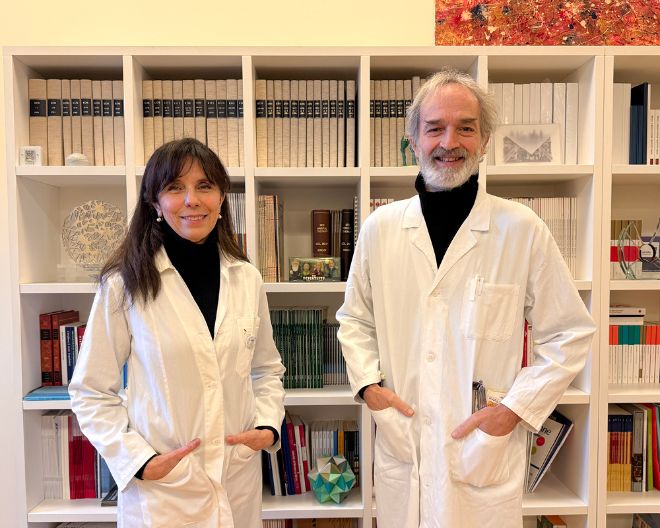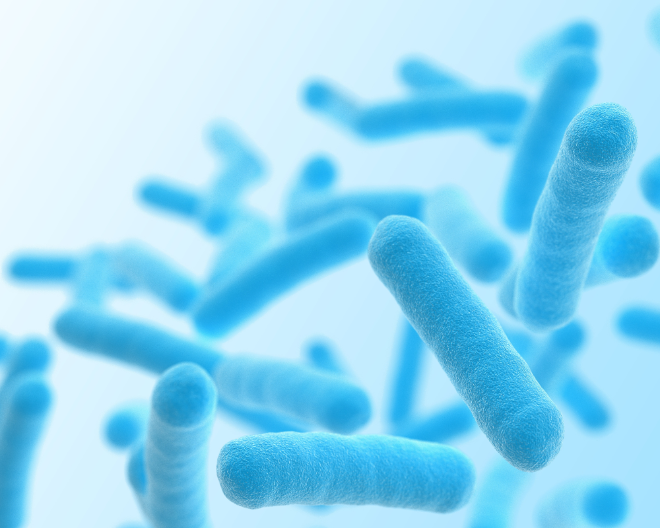Interleukin-2 in patients with depression improves response to treatment

A study conducted by researchers at the IRCCS San Raffaele Hospital demonstrates for the first time how the administration of the low-dose molecule brings benefits to patients with major depressive disorder and bipolar disorder
A study has just been published in the scientific journal Brain Behavior and Immunity that demonstrates for the first time the safety and efficacy of low-dose Interleukin-2 administration in depressed patients with major depressive disorder (MDD) and bipolar disorder (BD).
The research was conducted by Professor Francesco Benedetti, Professor of Psychiatry at the Vita-Salute San Raffaele University and head of the Research Unit in Psychiatry and Clinical Psychobiology, and Sara Poletti, researcher of the Psychiatry and Clinical Psychobiology Unit of the IRCCS San Raffaele Hospital - Turro.
The relationship between inflammation and depression
Despite enormous improvements in antidepressant psychopharmacology based on drugs that act directly on the function of neurotransmitters, one third of patients with major depressive disorder (MDD) do not achieve complete symptomatic remission and in subjects with ineffective initial treatment many relapses are observed despite the continuation of apparently effective treatment, paving the way for treatment-resistant depression (TRD). Outcomes are even worse in Bipolar Disorder (BD) which has been associated with extremely low success rates of antidepressant medications. From these bases arose the need for continuous research on pathogenetic mechanisms to meet the clinical need for more targeted and effective antidepressant treatment for more patients.
Previous studies had already shown that a systemic inflammatory activation precedes and is associated with the appearance of depressive episodes during major depressive disorder (MDD) or bipolar disorder (BD), as they lead to increased cytokine production, altered gene expression in circulating cells, and activation of brain microglia, resulting in the subversion of the homeostatic balance in neurotransmitter production and maintenance of the synaptic apparatus of neurons.

The literature also indicates that 30-50% of people with mood disorders have a clinically identifiable inflammatory state. Depression, particularly when resistant to traditional antidepressant therapies, is accompanied by an inflammatory state that invades the entire body. Indeed, depressed patients are more vulnerable to inflammatory and autoimmune diseases and, in turn, these diseases trigger depression even in those who have never suffered from them: the depression that affected Covid-19 survivors is one example.
The most recent evidence suggests that this pro-inflammatory activation is a consequence of a more general immune imbalance, with signs of senescence of lymphocyte cells, and their excessive activation in an inflammatory and autoimmune sense. Hence the hypothesis of stimulating the regulatory components of the immune system, not by blocking its functions (as was attempted in the past with anti-inflammatory drugs and monoclonal antibodies) but by directing its activity toward a better homeostatic balance.
The study
Interleukin-2 is a molecule, normally present in our body, with immunomodulatory functions, capable of influencing the activity of T lymphocytes, stimulating the production of new cells and their regulatory functions on immunity and inflammation. This T-cell growth factor has demonstrated anti-inflammatory efficacy in other autoimmune diseases and is already in use on the market, albeit in formulations other than the microdoses used in this study.
The newly published study evaluated the safety, efficacy, and biological responses of low-dose Interleukin-2 (IL-2) in depressed patients with major depressive disorder (MDD) or bipolar disorder (BD). Thirty-six patients were recruited from the mood disorders department of IRCCS Ospedale San Raffaele - Turro and were randomized in a 2:1 ratio, to receive either Interleukin-2 (12 MDD and 12 BD), or placebo (6 MDD and 6 BD).

The researchers thus established an antidepressant-boosting treatment with low-dose Interleukin-2 (IL-2), combined with the traditional antidepressant therapies the patients were taking. Changes in Interleukin-induced cell frequencies were rapidly achieved within the first five days of treatment, and predicted subsequent improvement in depression severity, with no major side effects. Proportional to the stimulation of T lymphocytes, study participants showed an enhanced antidepressant response, even when suffering from forms of depression resistant to traditional treatments.
The study thus confirmed that immune-inflammatory mechanisms represent promising targets for antidepressant pharmacology, and that correcting the imbalances between the inflammatory and regulatory components of our immune system may be a new therapeutic strategy for resistant depression.
Results and next steps
Says Dr. Poletti:
This is the first randomized control trial to support the hypothesis that treatment to strengthen the immune system, and in particular T cells, may be an effective way to correct the immune-inflammatory abnormalities associated with mood disorders and at the same time, enhance the antidepressant response.

We think that our studies may already change clinical practice: indeed, we have shown with this research the therapeutic effects of low-dose Interleukin-2 without detecting any side effects. We hope that this evidence will now pave the way for a new way to intervene on treatment-resistant depression, hoping to turn attention to addressing the process envisaged to obtain the indication for the clinical use of this substance for depression,
says Professor Benedetti.
The next step? We are already beginning to evaluate the effects of another antidepressant immunomodulator, minocycline, whose effects on the brain we are studying with innovative PET and MRI techniques; we are also studying how the history of exposure to infectious diseases and adverse experiences may have contributed to the condition of immune dysfunction that we have verified in our study participants. Research continues, and we think that at some point in the future we will be able to identify people who, rather than having to endure depression for many months without benefit from available treatments, can be treated-and healed-right away by acting on the immune system,
Professor Benedetti concludes.
The study was funded by European Union H2020 Grant 754740 "MOODSTRATIFICATION.
You might be interested in

World Rare Disease Day: Research at UniSR Continues All Year Round

Multiple sclerosis, breakthrough in research: researchers have identified a molecule that promotes repair of the nervous system

The microbiome as an ally against myeloma

